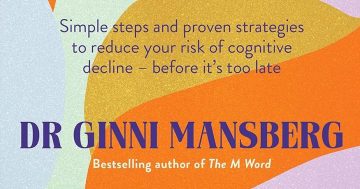Anton Chumak Andryakov* says that while we think being busy makes us efficient, overdoing it can make us efficiently ineffective.

Photo: Karen Lau
We are all familiar with the economic definition of the law of diminishing returns.
According to Wikipedia, the law of diminishing returns states that in all productive processes, adding more of one factor of production, while holding all others constant will, at some point, yield lower incremental per-unit returns.
As a society, we have started to grasp that if our employees have more than 55 hours of work per week, we actually do not see an increase in the total output.
One can argue that not just are we going to see no increase in production when we are overly busy as people, we see negative returns with added time.
We often like to look at things numerically and justify our inputs based on numeric and objective outputs.
This, in turn, often blinds us to some subjective aspects occurring around us.
Let us reflect on where these negative returns can come in if people are busy all the time and thinking that they are being effective by doing that.
Dancing to the slow tune
Cognitive decline is the first thing that shows up.
The overall operating speed of your brain slows down.
Think of a computer that is taking a long time to load.
So much time is wasted waiting for that spinning circle to bring up what you are waiting for.
This is obvious when it happens as the time elapsed is generally observable.
When our brain slows down, it is different as the change is subtle and so can go unnoticed.
But, if we compound that fraction of a second slowdown over millions of processes that occur in your head daily, we start to grasp the massive amount of time that can go wasted.
The harsh reality is that often this amount of time is greater than what we invested by being overly busy.
Problem is that it is unseen and not easily quantifiable, so we tend to overlook this.
Putting stress
Emotional intelligence decreases as our body does not know the difference between running from a threat type of stress or being too busy throughout the day type of stress.
In your head, you may not be overwhelmed but our body could be a different story.
The worst stress is the unseen physical stress that our body endures as yet again we can be unaware of its occurrence.
This makes our survival mechanism come in much stronger than needed and our animal side of the brain that is reactive takes over our human side of the brain which is logical and responsive.
This makes our self-awareness and self-management much harder to maintain.
We all know the number of bad decisions we can make when we are not in a good emotionally intelligent state.
Yet again, recovering from these decisions often is much more time consuming than the amount of extra time we invested in being busy.
Mistakes coming from having a tunnel vision do not allow us to think outside the box or create a lack of action due to fear of taking a risk.
Being overly busy does not just overwhelm our mind; it puts our mind into a box that simply cannot be effective in the modern world.
Warren Buffet talks about how important it is for CEOs to have a lot of empty time to simply sit and think.
This is where our great ideas come from that can make millions, change lives or simply get us to our destination.
We think that being busy makes us efficient, but if we do not make time for just thinking and taking care of our mind and body, we can become efficiently ineffective.
Yet again, spending too much busy time could lead to much fewer results than being able to back off and spend time in deep thought that leads to innovative and out-of-the-box ideas.
Suffering relationships and work/life imbalance are a natural outcome from being overly busy.
People know that they do not matter to you if you cannot make time for them, irrespective of how good an excuse you can make.
When our home life is not good, we are not good anywhere.
So many will say that busy is the new stupid, but judging by the massive impact it could have, overworking or being too busy is much worse.
* Anton Chumak Andryakov is CEO of Coaching Hub.
This article first appeared at www.entrepreneur.com.











